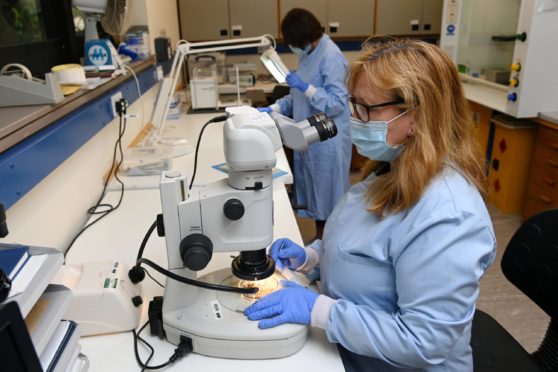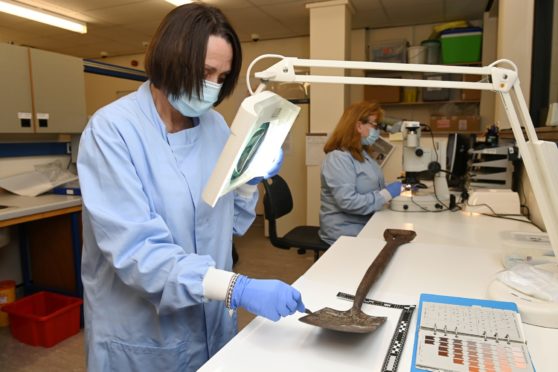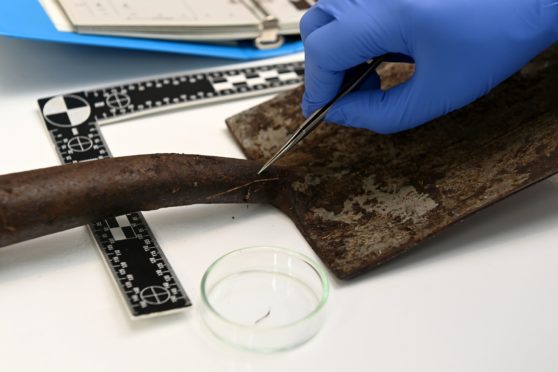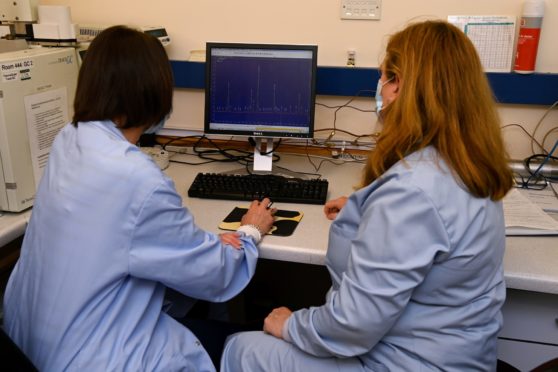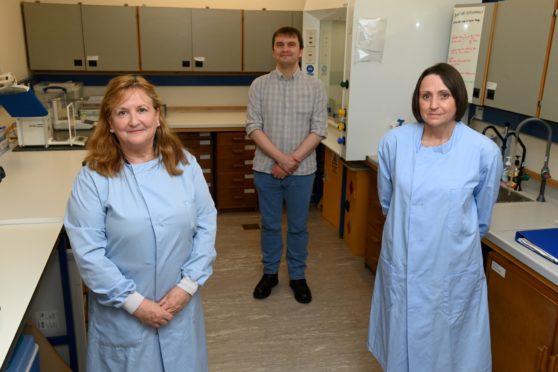Soil samples as small as half a grain of rice can yield results which can be crucial to criminal cases.
The team at the James Hutton Institute in Aberdeen carry out painstaking and meticulous work to analyse samples that can help solve crime.
We joined Professor Lorna Dawson in the lab as she showed us the process of how samples are examined.
Using a spade, which is not part of evidence for any cases, the team showed how they can find a wealth of information from the tiniest piece of soil.
A ‘meticulous’ process
Gas chromatography – which involves extracting, separating and analysing the different components of the soil – is done on a special machine at the James Hutton Institute and the results are fed into a computer.
Professor Dawson, who grew up on a potato farm in Angus and has spent more than 30 years working in soil forensics, said: “You have got to be meticulous. I’ve got a team here, there’s always two of us.
“Whenever I’m examining a sample, my lab manager Caroline is here. So nothing is done without someone witnessing anything.”
Time frames differ per case
The length of time it takes to work on samples differs depending on the case.
Professor Dawson said: “It depends on the number of samples and the number of questions.
“For example, we got a question from the defence in a case – they said ‘can you run these six samples, our client denies he was at the deposition site’.
“I said ‘yes that’s simple’ We did it and turned it around in three weeks. In fact, we showed it was excluded from the site and the soil on the shoes could not have come from the deposition site.”
She added: “As an expert, your evidence is for the court – so we are equally working for defence agents as well.”
Tiny samples can produce results
Professor Dawson has herself pioneered methods of examining soil samples.
She explained: “We can work on samples as small as a grain of rice or even half a grain of rice.”
Professor Dawson and the team also used their expertise to help scientists around the world. This includes overseeing cases in Brazil where they have successfully used soil science for the first time in a couple of murder cases.
She added: “We are also always keen to train up scientists in other countries who are maybe less fortunate in having the good facilities that we have in the UK.”
To find out more about some of the cases the team have helped with click here.
